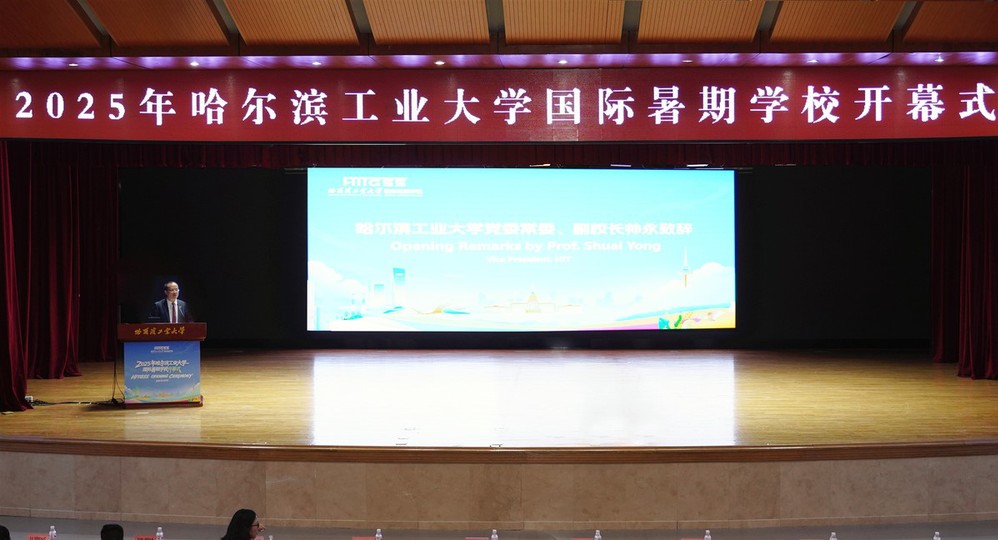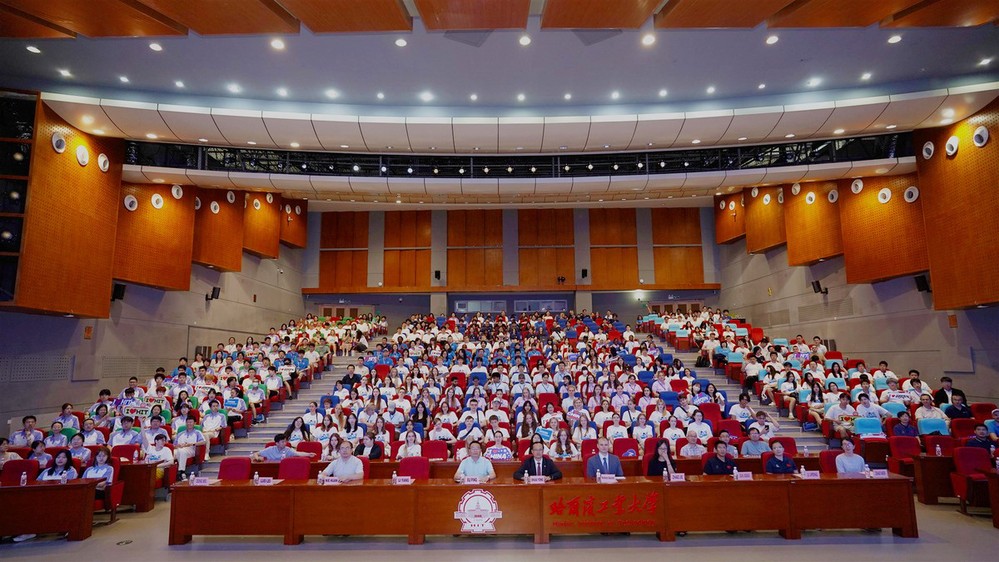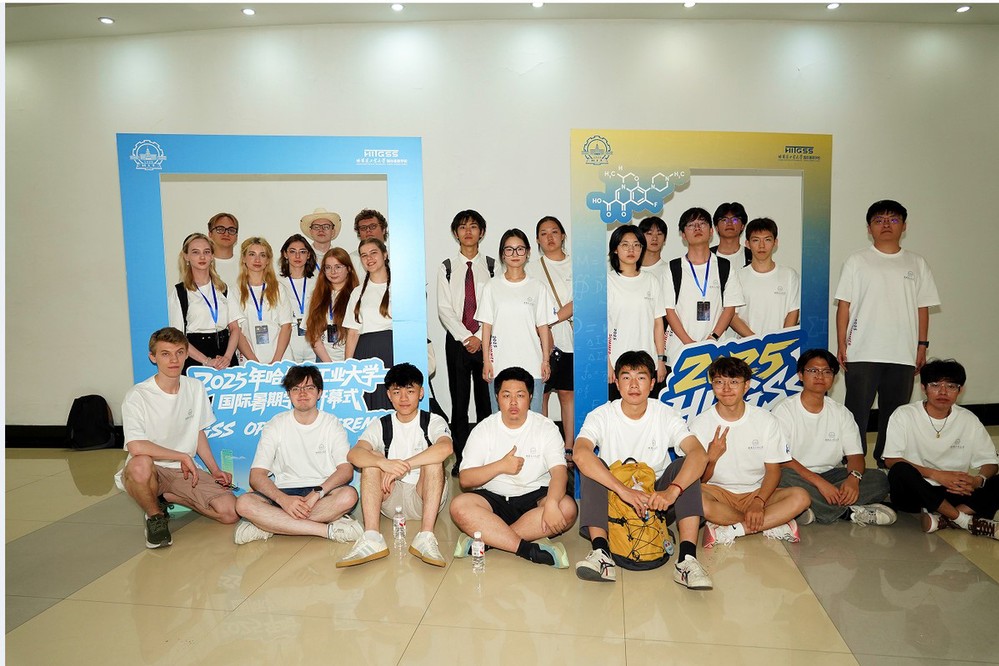HIT MEDIA (By Shang Yankai & Wu Wanqiong/Photos by Undergraduate College)
The opening ceremony for the 2025 HIT Global Summer School took place on campus on July 8. Nearly 1,700 students from diverse disciplines and over 100 experts and scholars, representing institutions such as Tsinghua University, Shanghai Jiao Tong University, Fudan University, Saint Petersburg State University (Russia), Yonsei University (South Korea), and Universidad Politécnica de Madrid (Spain), gathered to engage in exchanges on cutting-edge issues within their fields. HIT Vice President Shuai Yong attended and addressed the ceremony.

At the opening ceremony
Vice President Shuai Yong welcomed the visiting faculty and students. He then introduced HIT and the vision of the Global Summer School. He encouraged participants to be bold in exploration and innovation. By doing so, they could push boundaries and unlock their potential in studies and practical work. He also emphasized the importance of openness and inclusivity, stating that it would promote dialogue and cultural understanding. Lastly, he advised integrating knowledge with practice, so as to use their enthusiasm to drive human progress.
Professor Zhang Yu from the HIT School of Computing, undergraduate student Luo Liwei from the School of Astronautics, and Aleksandr Kovalev, an undergraduate from the National University of Science and Technology MISIS (Moscow), spoke as representatives of faculty and students.
The ceremony featured an insightful keynote report by Alexander Molokanov, Academician of the Russian Academy of Sciences, titled “Powering Tomorrow: Smart Low-Carbon Energy Innovations,” which officially launched the academic program of the Summer School. In this report, which focused on the forefront of global energy transition, it delved into technological innovations and development trends in smart low-carbon energy.
HIT has successfully hosted nine sessions of the Global Summer School to deepen the internationalization of its undergraduate education, enhance the university’s global influence, expand high-quality learning resources for students, and create a platform for profound academic exchange, intellectual collision, and cultural integration between Chinese and international students.
This year’s Summer School offers 22 specialized programs, including:
l Next-Generation Intelligent ICT
l Intelligent Robotics
l Physics and Future Technological Transformations
l Frontiers in Biology and Medicine
l Intelligent Civil Engineering and Construction
l Training Camp for International Organization Talent Development
Organized by the School of International Education and various HIT schools/departments leveraging their disciplinary strengths, the programs feature collaborative initiatives. Notably, the School of Astronautics and the School of Architecture and Design are partnering with counterparts at Zhejiang University and Tongji University to launch the inaugural joint programs “Mechanics Exploration and Future Aerospace Vehicles” and “Imprint·Twin Cities” respectively. These aim to create diverse academic exchange platforms through transnational, trans-regional, and interdisciplinary research frameworks.

At the opening ceremony

Group photo of some Chinese and international students
Representatives from the Undergraduate College, the School of International Education, faculty members involved in the programs, and participating students from China and abroad attended the opening ceremony.



